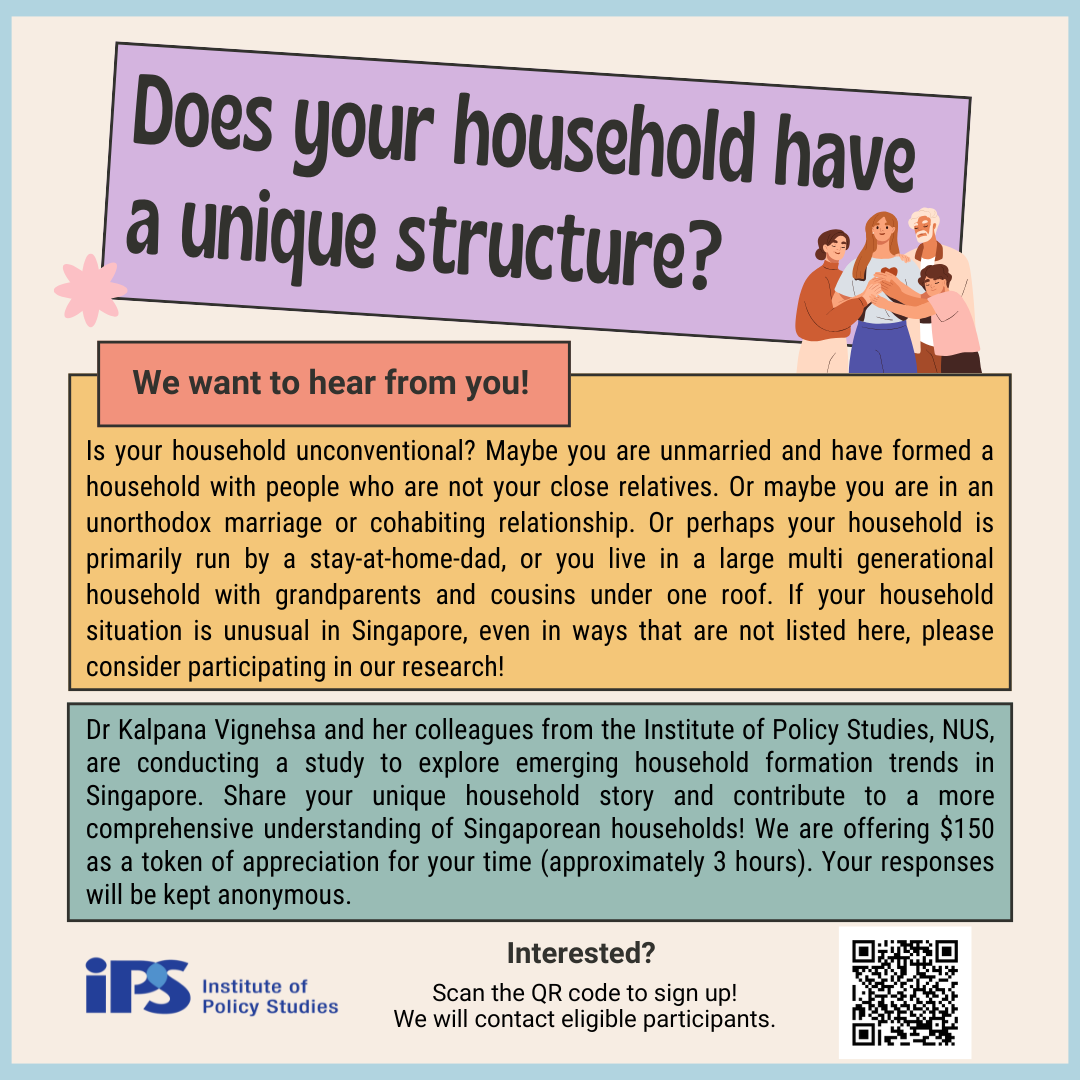Emerging Patterns of Household Formation in Singapore

Are you a…
• Singaporean Citizen or PR aged between 21 and 75 years old?
• Able to participate in an English-language discussion for up to 3 hours?
• Part of a household formation in Singapore that might be considered unconventional? (e.g., cohabiting unmarried adults with no intention to marry, sandwiched young seniors, single friends sharing a household, married friends sharing a household with other friends, couples in unorthodox married or cohabiting relationships, households run by stay-at-home-dads, large multigenerational households) OR
• Something totally different from these examples.
What you can expect…
• Researchers will conduct one in-person ethnographic interview with you for up to 3 hours in your home.
• The discussion will be audio-recorded for transcription purposes.
• You will have the opportunity to share your unique household story and contribute to a more comprehensive understanding of Singaporean households and emerging trends.
• Your responses will be completely anonymous, and your name or any other identifiable information will not be mentioned in any publications or presentations arising from this project.
What you stand to gain…
• Reimbursement of $150 as a token of appreciation for your time (approximately 3 hours).
• Benefit households like yours by helping researchers and the general public understand them better.
Why are we conducting this study?
Dr Kalpana Vignehsa and her colleagues from the Institute of Policy Studies, NUS, are conducting a study to explore emerging household formation trends in Singapore. This emerging household formation project aims to address research gaps in relatively understudied subpopulations in Singapore by providing a holistic picture of the heterogeneity of household forms.
Through these ethnographic interviews, we seek to understand these households' motivations and challenges, with a focus on how they came to be formed. We want to know if there is a pattern to how these households emerge, the main similarities and differences that may exist among them, and some of the boons and burdens they experience.
Share your unique story and contribute to a more comprehensive understanding of Singaporean households!
Study Title: Emerging Patterns of Household Formation in Singapore
Reference code: NUS-IRB-2024-595